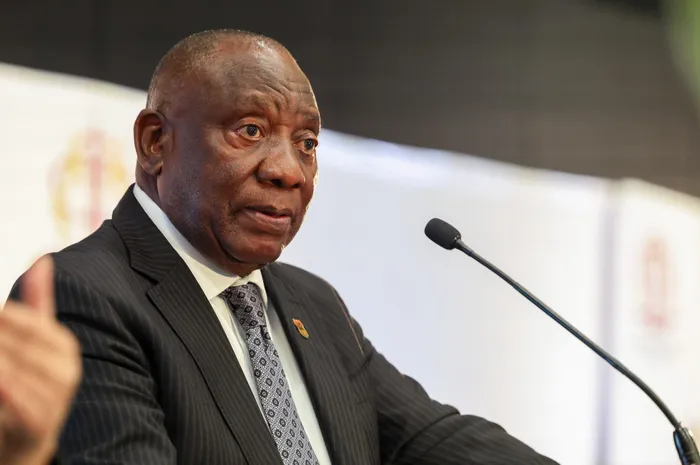Ramaphosa: 250,000 jobs created as South Africa’s economy shows signs of recovery

President Ramaphosa says South Africa is showing early signs of economic recovery as unemployment falls, government finances improve, and structural reforms accelerate ahead of the first G20 summit on African soil.
Image: Jairus Mmutle/GCIS
President Cyril Ramaphosa has highlighted signs of economic recovery in South Africa, pointing to improved employment figures, government finances, and structural reforms as the country prepares to host the first G20 summit on African soil.
In his weekly letter to the nation, Ramaphosa said the latest data “point to the green shoots of an emerging economic recovery” despite recent economic challenges.
The president noted that unemployment fell to 31.9% in the third quarter, down from 33.2% in the previous quarter, with nearly 250,000 more people employed, including around 130,000 in construction.
Ramaphosa described these developments as encouraging and said the Medium Term Budget Policy Statement delivered last week “points to a sustained turnaround in government finances,” with the country on track to achieve a third consecutive primary budget surplus.
He explained that this surplus, which excludes interest payments on debt, is “a sign of prudent financial management, giving us space to steadily reduce our debt to sustainable levels.”
South Africa’s sovereign credit rating was also upgraded by S&P last week, the first such upgrade from the agency in nearly two decades, he said.
Ramaphosa said the improved rating “generally leads to lower borrowing costs, which allows for more funds to be invested in the economy and in meeting social needs.”
He highlighted that S&P cited improved performance at Eskom, strong tax collection, and the acceleration of structural reforms as factors contributing to the positive outlook.
'' Among the factors S&P cited for the positive outlook were Eskom’s improved performance, strong tax collection, and the broad structural reform momentum having ‘picked up pace.''
The president described Operation Vulindlela, established in 2020 to implement transformative reforms and boost economic growth, as showing steady progress, particularly in the logistics and energy sectors.
“The most noteworthy improvements have been witnessed in the energy sector, with Eskom now on the road to recovery, massive investment in renewable energy generation, and vastly improved electricity supply,” Ramaphosa said.
He also noted that Phase II of Operation Vulindlela is now focusing on reforms in local government, digital transformation, visa regimes, and spatial inequality, which could lift South Africa’s long-term growth rate by as much as 3.5% when fully implemented, according to modelling from the University of Stellenbosch’s Bureau of Economic Research.
''Despite considerable headwinds that have including a global pandemic, a debilitating energy crisis and more recently, a difficult global trade environment, we have stayed the course on economic recovery and are now seeing this pay off.''
Ramaphosa emphasised that these economic changes are the result of partnerships between government, business, labour, and civil society.
''These far-reaching economic changes have a direct and material impact on the lives of every South African, on their ability to lead dignified lives, to access public services, to secure employment, and to provide for their families.”
He said that the government is determined “to sustain the momentum of this economic recovery, so that we can drive inclusive growth, create jobs and improve the lives of our citizens.”
hope.ntanzi@iol.co.za
IOL Politics
Get your news on the go. Download the latest IOL App for Android and IOS now.
Related Topics: